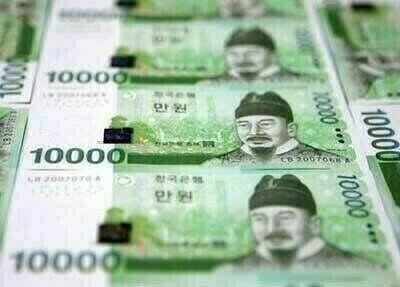Emerging Asian currencies and stocks were broadly mixed on Tuesday after Federal Reserve policymakers tempered US rate cut expectations that had led to an earlier risk-on rally.
Malaysia’s ringgit, the worst performing currency in emerging Asia so far this year, was up 0.3% at 4.6780 per dollar.
The Philippine peso was largely steady. It had touched a one-month low last week.
The Federal Reserve’s dovish tone last week bolstered emerging assets, but markets were treading cautiously after pushback on Monday from New York Fed President John Williams and the Chicago Fed’s Austan Goolsbee.
Markets now await the core personal consumption expenditure (PCE) index data, scheduled for release on Friday.
The data is expected to provide further clarity on whether inflation has slowed sufficiently for the Fed to begin easing its monetary policy next year.
“Investors have jumped on the bull trend despite the pushback from Fed officials. But the upcoming PCE data could impact the dovish pivot,” said Poon Panichpibool, a markets strategist at Krung Thai Bank.
The South Korean won depreciated 0.5% to 1,305.1 per US dollar, and was set for a three-session losing run.
Most Asian currencies extended gains
Panichpibool said the won had followed its shares index in underperforming relative to other emerging market assets after a recent ban on short-selling dented confidence in the country’s equity market.
In Southeast Asia, Bank Indonesia (BI) is set to hold its policy rate meeting on Thursday, with the central bank expected to maintain its key policy rate for a second month as inflation remains within target range and the rupiah has stabilised, according to a Reuters poll.
Nearly all economists in the poll forecast the next move from BI would be a cut, likely in the third quarter of 2024.
The Indonesian rupiah has gained nearly 2% since a surprise rate hike in October, easing pressure on imported prices, and is up about 0.4% for the year.
Equities in Taiwan slumped 0.6%, while those in Singapore, Indonesia and India rose between 0.3% and 0.4%.
In Tokyo, the yen dipped and the Nikkei rose after the Bank of Japan left its guidance and ultra-easy policy unchanged, in line with economists’ forecasts.























Comments